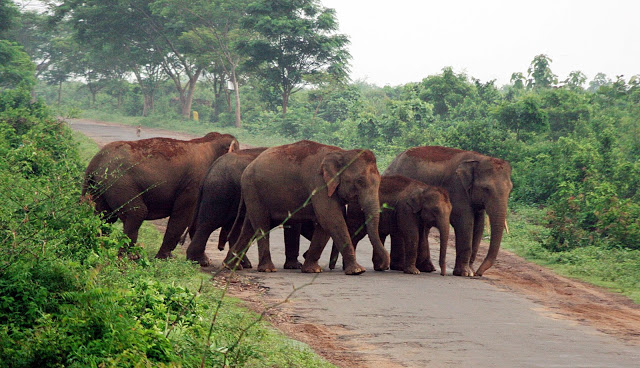ARINDAM GANGULY, OP
Bhubaneswar: Relentless human activities like mining, agriculture, industrial development and urbanisation in Odisha’s elephant landscape have severely disrupted traditional habitat corridors, leading to increased conflicts between humans and the gentle giants, experts said Monday on the eve of World Elephant Day. According to the latest census, Odisha is home to 2,098 elephants. In 1979, there were 2,044 elephants, mostly confined to rich forested districts. However, the state has now turned into a gruesome graveyard for the pachyderms.
Between 2017 and November 2024, a staggering 634 elephants have died in the state due to reasons like deliberate electrocutions, train collisions and poaching. The 2024-25 period alone (until March 18, 2025) saw a record 94 elephant deaths—the highest in any year to date. According to a study by the Asian Nature Conservation Foundation, Odisha’s forest landscapes can sustainably support only 1,700 to 1,800 elephants.
With the population now exceeding that limit, elephants are being pushed into farmlands, villages, and towns, sparking daily conflict. Sangita Iyer, founder of Voices for Asian Elephants, said forests are vanishing at unprecedented rates. “In 2024 alone, India lost 29,000 hectares to roads, mining, dams, and defence projects,” Iyer said, adding that the result is a 36 per cent rise in elephant attacks and displacement, both human and animal, in thousands.
Ancient migratory corridors, used by elephants for generations, have been blocked by rail lines, illegal mining and urban expansion. With food and water sources gone, elephants are now trampling crops, entering homes, and often getting killed in retaliation, Iyer pointed out. “While development and resource use are necessary, they must never come at the cost of irreversible damage to the natural world. The path forward demands sustainable development, strict enforcement of wildlife protection laws, community education and unwavering political will, Iyer added.
Jitasatru Mohanty, a former senior forest officer and trustee of Save Elephant Foundation Trust, said in the past, people had a respect for elephants and even welcomed them during harvest. But now, anger and fear dominate. “Human casualties and crop losses are rising, but compensation is slow or inadequate, deepening resentment among affected communities,” he added. “Elephants taught us coexistence. Now it’s our turn to remember that lesson before it’s too late,” Mohanty pointed out. Wildlife biologist and Bikash Saathi founder Biswajeet Panda, who in association with Orissa POST and Dharitri launched Odisha’s first community interaction platform on elephant conservation – ‘Hati Sabha’, said elephants today face a host of challenges like habitat fragmentation, shrinking corridors, railway accidents and food scarcity. “These threats, highlighted through SWOT analysis, require urgent and integrated solutions. Measures like rail fencing, trench revival, rock wall construction, bamboo plantations within reserves, early warning systems, and distribution of night torches to forest-edge communities can significantly reduce human-elephant conflict,” Panda said. He added that promoting alternative livelihoods can also go a long way to help reduce pressure on forest resources, fostering more sustainable coexistence. “Enhanced surveillance during migration and proactive efforts to prevent railway collisions are crucial. Ultimately, long-term elephant conservation depends on strong coordination between Forest Department and local communities,” Panda pointed out.
Sanjukta Basa, a local conservationist, has been advocating for ground-level interventions like restoration of corridors with tree and bamboo plantations, creation of water bodies, curbing illegal mining, avoidance of human activity during elephant migration, use of sound deterrents like tiger roars and fair as well as prompt compensation.
Noted environmentalist JK Panigrahi said, “On World Elephant Day, we honour their emotional lives and wisdom. “Odisha’s forests are vital to their survival, yet habitat loss, conflict, and poaching threaten them. Urgent, united action is needed to protect these gentle giants and preserve India’s rich elephant heritage,” he said. PCCF (Wildlife) Prem Kumar Jha said behavioural change is crucial. “We’re guiding people on how to respond when elephants are nearby. This work will continue in a sustained manner,” added Jha.






































